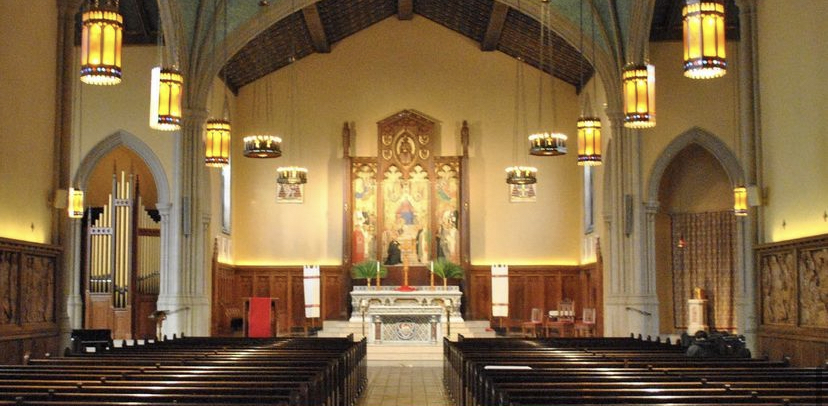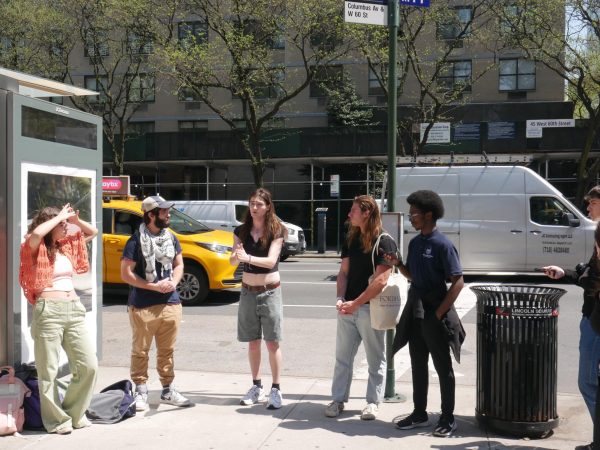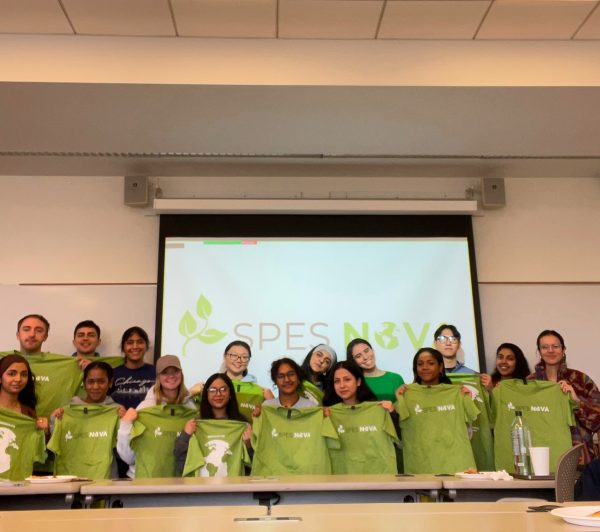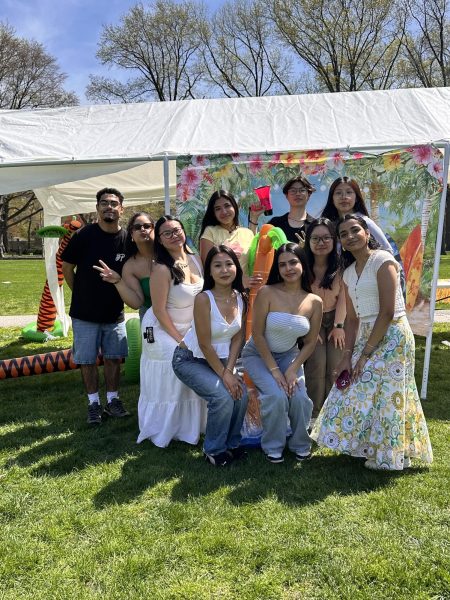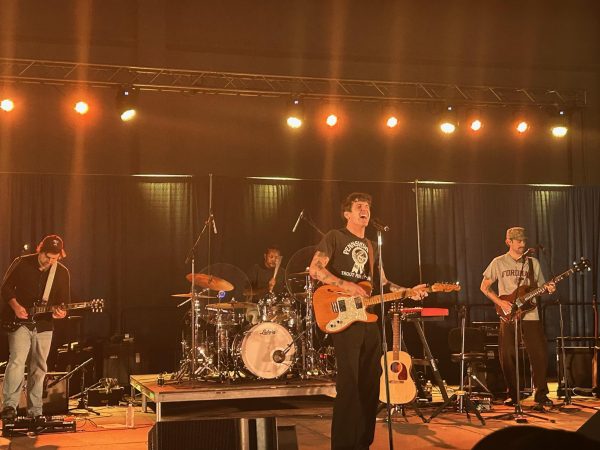Students Speak on Their Catholic Experiences and Identities
Student panelists gather to discuss their personal journeys and experiences with Catholicism.
On Feb. 22, Fordham students and professors gathered in Duane Library to listen to a panel of students voice their thoughts on the Catholic narrative and identity. Organized through the Curran Center for American Catholic studies at Fordham and moderated by Benedict Reilly, FCRH ’23, the panel consisted of four Fordham undergraduates who represented a variety of student perspectives on the Catholic faith.
The panel’s aim was to delve into questions such as “What is the Catholic story?” and “What does it mean to be Catholic?”
“We each play a role in the Catholic story at Fordham,” Reilly said.
Reilly began by asking the panelists to share their experience with Catholicism. Starting off the panel, Triona Delumpa, FCRH ’22, shared that, although she was born and raised Catholic, she first began exploring her personal relationship with her faith after her confirmation retreat. Although Delumpa has a strong personal connection to her faith, she has grappled in the past with church doctrine and her relationship with God.
Kelsie McSweeney, FCRH ’23, converted to Catholicism and was confirmed at Fordham in 2019. She comes from a religiously diverse familial background and she identified as Christian growing up. Fordham was her first experience in a large Catholic community.
Despite being raised Catholic, Nolan Chiles, FCRH ’23, felt disconnected from his faith; attending church often felt more like an obligation rather than a celebration. When he chose to attend Fordham, he made his decision based on Fordham’s prestigious Jesuit education and the comprehensive liberal arts core curriculum, not based on the spiritual opportunities the university offers. However, Chiles said that his Fordham experience has given him the chance to learn how to engage with his faith in a way that he feels comfortable, saying, “You can’t treat your faith like it’s a chemistry course.”
Similarly, Augustine Preziosi, FCRH ’23, didn’t feel part of a larger Catholic community until he came to Fordham. While reflecting on his faith journey, Preziosi noted the parallels between himself and St. Augustine and the appropriateness of sharing the name with the famous saint.
“I was kinda just going through the motions … I felt like I was St. Augustine, still searching.”
Once each panelist reflected on their past and present narratives with Catholicism, Reilly asked, “What is it about your narrative that illuminates a larger narrative?”
McSweeney began by stressing the importance of community in fostering spirituality. Agreeing, Chiles advised the audience to find a way to encounter their faith in an environment that is comfortable to them. Providing a personal example, Chiles shared that he feels most comfortable in an academic environment so, at Fordham, he has experienced faith in the classroom. Chiles also highlighted the various opportunities Fordham provides students to engage with their faith in a non-traditional way such as Java with the Jesuits and spiritual retreats.
Continuing the conversation of community in the Catholic church, Delumpa commented, “You actually need to have that action part of ‘faith in action.’” For Delumpa, faith in action consists of willingness to partake in social justice and advocating for change.
In addition to social justice, Preziosi called attention to the importance of charity, “Fordham does a good job showing us how we can get involved … we are extremely fortunate to learn how to help the marginalized.”
Wrapping up the panel, Reilly asked “What is it that makes a story or person Catholic?”
Among the four panelists, the students agreed that being Catholic constitutes trying to bring about positive change and seeking to understand the world through a canon law.
In his response, Preziosi reassured the audience that a sense of struggle with the Catholic faith is normal. Referencing St. Ignatius and St. Augustine’s personal struggles with lust and trying to find God, he said, “There is no blueprint to live a pious life”.
Similarly, Delumpa commented, “It’s important and necessary to doubt, to think about your personal beliefs.”
In his final comments and words of advice to the audience, Reilly encouraged the attendees to continue to engage in conversations surrounding the Catholic faith and community. Fordham is home to a diverse group of students with varying religious backgrounds and experiences. By engaging in these conversations, students can progress along their own faith journey, help each other develop new opinions and maintain an open dialogue.
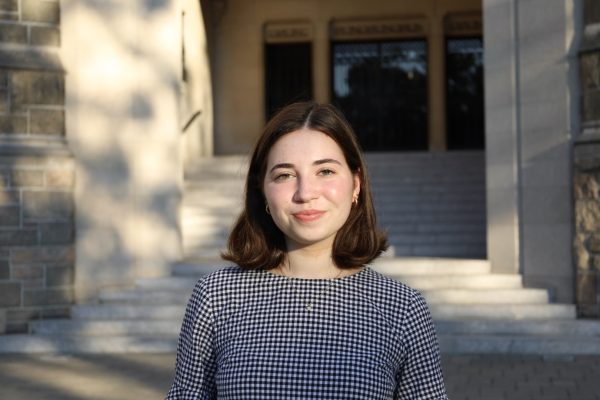
Sofia Donohue is a senior from Kensington, Md., who is majoring in English with a double minor in history and Italian. She first joined the Ram as a digital...



































































































































































































